What India Needs Now: A Political and Cultural Cure - An Exclusive Interview with M.A. Baby
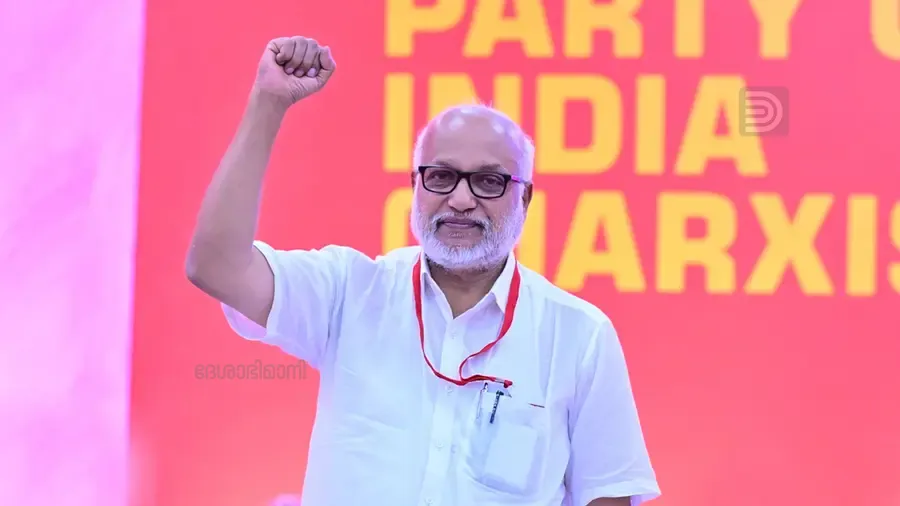
M A Baby
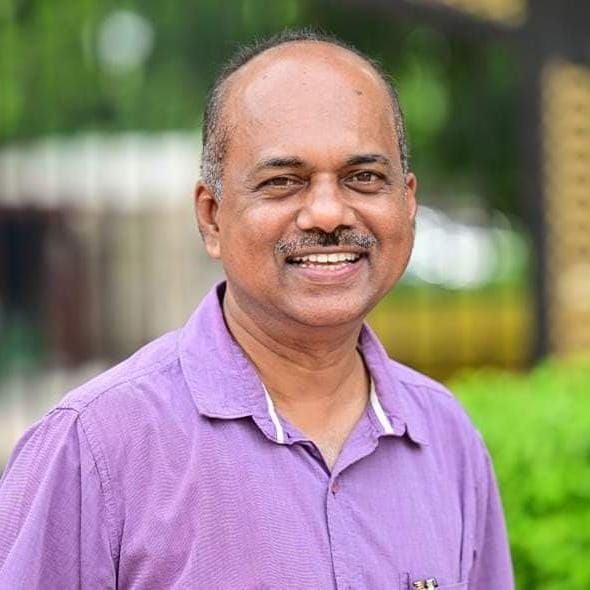
Sajan Evugen
Published on Apr 11, 2025, 01:33 PM | 9 min read
As India’s democratic foundations face unprecedented strain, the 24th Party Congress of the CPI(M), held in Madurai from April 2 to 6, emerged as a beacon of resolve and resistance. With the Modi-led government accused of eroding constitutional values and deepening communal divides, the Congress called for a bold recalibration of the Left’s political and cultural strategy. Its declarations have ignited renewed hope among secular, democratic, and progressive forces across the country.
In an exclusive conversation with Deshabhimani Digital Media Coordinating Editor Sajan Evugen, CPI(M) General Secretary M.A. Baby outlines the action plan adopted by the Party Congress to intensify the battle against communal forces and anti-people policies.
Q: How can the Party Congress’s call to strengthen the CPI(M)'s independent base be interpreted in political terms?
M.A. Baby: The Party Congress set forth two crucial tasks. First, to significantly strengthen the independent base and overall influence of the CPI(M) and the broader Left. Second, to urgently intervene politically against the dangerous trajectory of the Modi regime. The political resolution adopted at the Congress makes it clear: the current central government is not just regressive—it is displaying clear neo-fascist tendencies that are poisoning the entire fabric of Indian society. The Modi government is taking steps one after another that are destroying all our constitutional values.
Two notable developments took place on the same day after the party congress concluded. The Supreme Court declared that the Governor's action in blocking 10 bills passed by the Tamil Nadu assembly was wrong. This is also important in Kerala. Kerala also faced the same situation when Arif Mohammed Khan was the Governor. This verdict reinforces the CPI(M)’s position that the Modi government is undermining the Constitution. The economic onslaught also continues, with increased duties on petrol and diesel, and yet another hike in cooking gas prices—all of which are burdening ordinary people.
To resist this multi-pronged attack, we must expand the CPI(M)'s presence and capacity tenfold. That means growing not just in numbers, but in influence, discipline, and grassroots reach. The Party Congress carefully examined this in its Organizational Review Report. Just as cells sustain a living organism, branches are the life force of the party. We have around one lakh branches nationwide, all coordinated by local and upper committees. There are district committees, state committees, a central committee and a politburo. The Party Congress has decided to increase the efficiency of all these committees many times over. State units must spearhead training initiatives for branches. Higher committees must sharpen their capacity for struggle. Parallel to this, local agitations should be raised on issues that affect the lives of the people.
Since the Kannur Party Congress, we have seen several successful movements on this front: farmers in Rajasthan fought for crop insurance; landless people in Telangana demanded housing rights. These weren’t just protests—they were models of sustained, grassroots action. We’ve also seen creativity in organizing. DYFI activists in Kerala raised 20.4 crore rupees for Wayanad landslide victims by collecting waste materials and hosting a biryani challenge. When this amount was presented to the central committee, it stunned many. The Madurai Congress highlighted such achievements not just as inspiration, but as blueprints for new models of struggle. The goal is to escalate agitations into a larger, organized movement.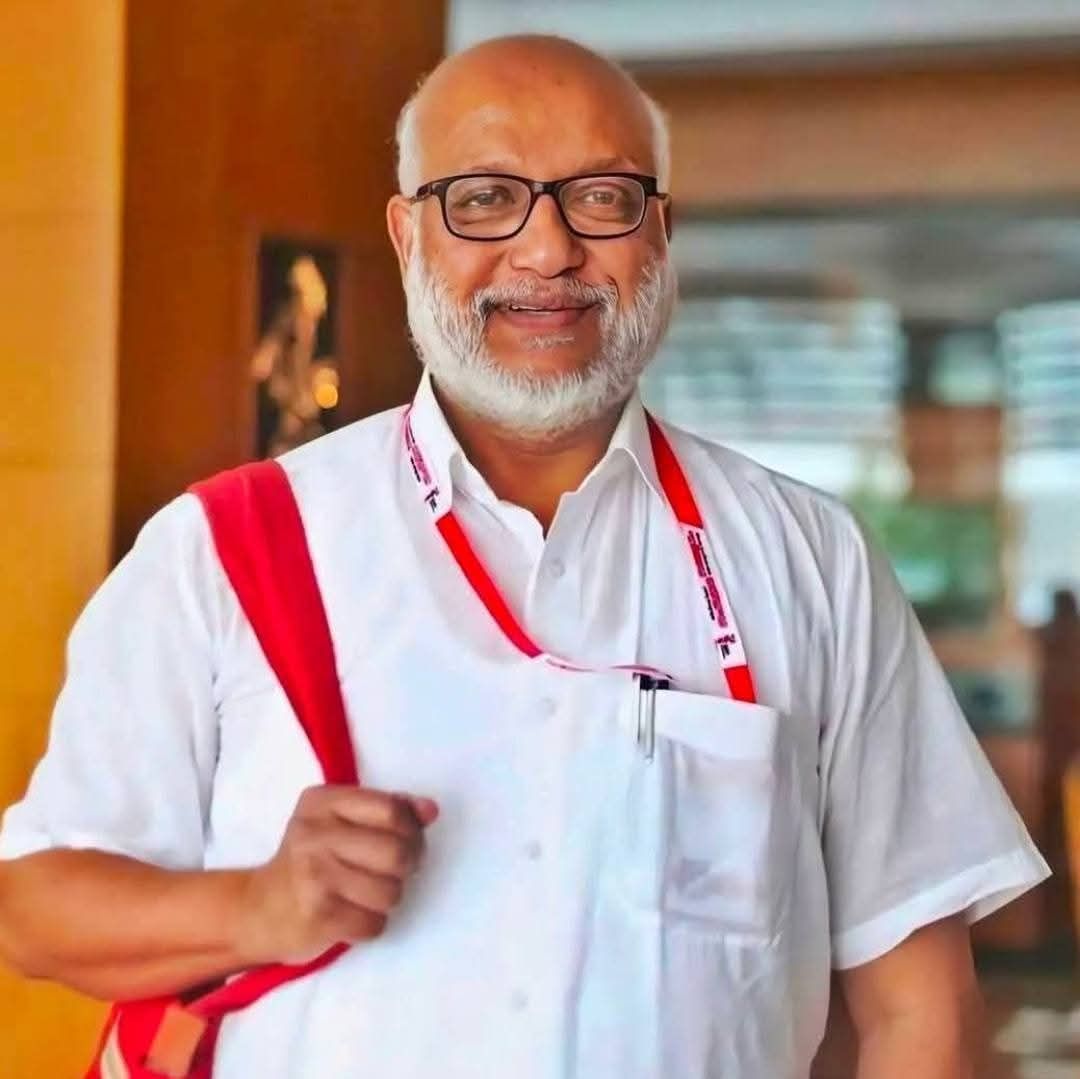
How does the CPI(M) plan to confront the Sangh Parivar ideologically and culturally?
The RSS has deeply infiltrated Indian society, operating through countless affiliated organizations in varied forms. Unfortunately, most political parties in the country—be it the Congress, SP, or others—fail to recognize the gravity of this threat. They view the BJP merely as a political rival. But the BJP is not just another party. As stated in the CPI(M) party program, it is the political arm of the RSS, created to implement its vision. This lack of clarity among the broader opposition weakens the ideological resistance to the Sangh Parivar.
As early as the 1990s, CPI(M) leaders were sounding the alarm. One notable example is Sitaram Yechury’s article What is Hindu Rashtra, published in Frontline and recently republished during the Party Congress. It laid bare the long-term agenda of the RSS and its political front, the BJP.
However, the CPI(M)'s clear ideological position hasn’t reached the masses effectively, largely due to the dominance of bourgeois media. To correct this, the Party Congress has launched a major initiative. The party politburo has prepared a study note that discusses the origin, growth, the subversive activities carried out by the RSS, and its anti-social and anti-democratic nature. This note, which has been prepared for the education of the people, has been translated into various Indian languages.
But countering RSS ideology requires more than just statements—it demands sustained cultural intervention. The Party Congress emphasized that this responsibility cannot be delegated solely to cultural wings. Instead, there must be a unified and structured approach to ideological and cultural work embedded within all class and mass organizations of the party.
While we currently hold public lectures and cultural programs, these are not enough. The Sangh’s strength lies in micro-level mobilization—in homes, workplaces, and everyday spaces. To challenge this, we need a systematic, grassroots-level program. Party cadres must go to people’s homes, engage them patiently, and help break the grip of communal ideology. This is a long-term political and cultural mission—one that must be rooted in consistent, local-level work.
How can the growing influence of the BJP be effectively weakened?
The BJP’s prolonged rule at the Centre has led to a dangerous normalization of its ideology among certain sections of society. To effectively counter this, it must become part of the nation’s collective consciousness that the Sangh Parivar’s hands are stained with Gandhiji’s blood—the same ideology and machinery were behind the Gujarat genocide, and the murders of Kalaburgi, Gauri Lankesh, and Dabholkar. Only when this truth becomes part of the collective consciousness can we begin to dismantle the neo-fascist forces that currently dominate power across much of India.
The BJP continues to cling to power with only a marginal lead—just a two percent vote difference. This means it is entirely possible to defeat them, and the people must begin to believe in that possibility. However, the fight against communalism cannot be ended by defeating Modi in the Lok Sabha elections. The Sangh Parivar has systematically injected communal poison into the very fabric of Indian society for over a decade. Detoxifying the country will require nothing short of a massive political and cultural campaign.
This is why the CPI(M) believes that broad unity is essential. Political, social, and cultural organizations and individuals committed to secularism and democracy must come together. And to lead such a transformation, the CPI(M) and the Left must grow in strength—tenfold.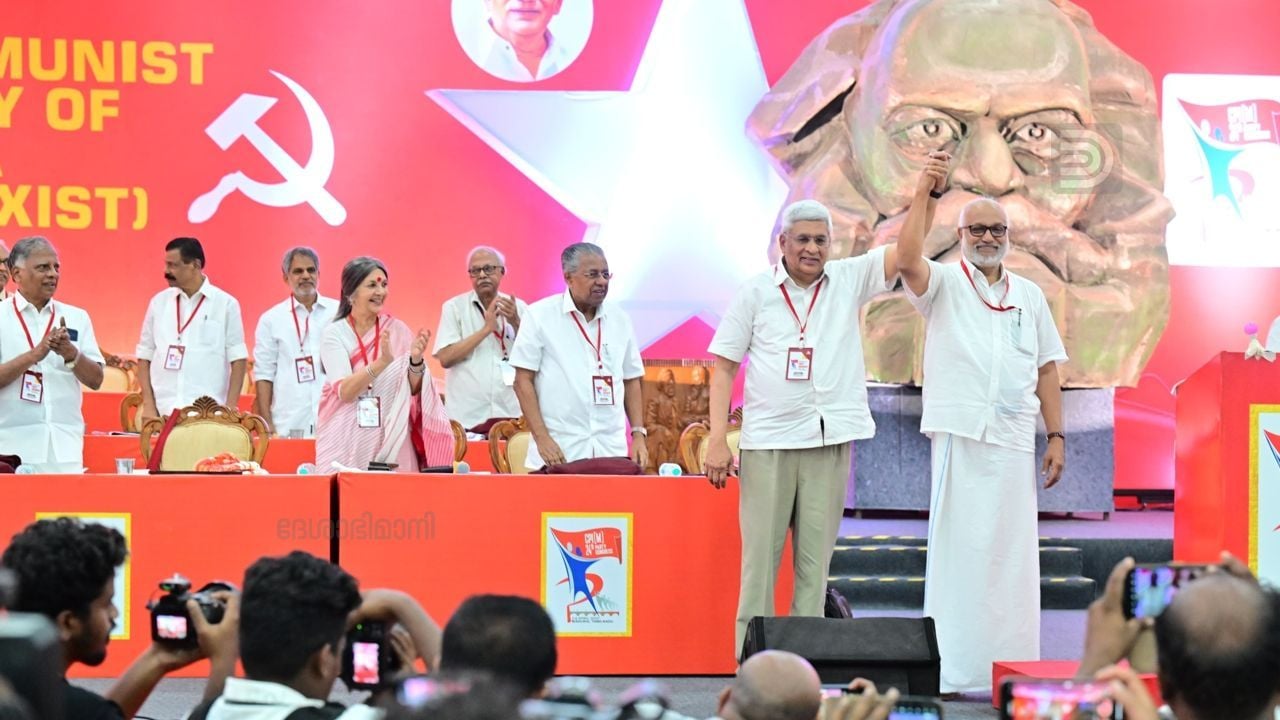
The setbacks faced by the global socialist bloc have had their impact on India too. But with nearly 25% of the world’s population still living in socialist countries, shouldn’t socialism be asserted more confidently as a credible alternative in the Indian context
There is a narrative—especially from those citing the rise of the far-right—that communism and the Left have no future. But thoughtful individuals across the globe are deeply concerned about what a world without Left politics would look like. Look at what capitalism and imperialism are doing to billions of people: crushing inequality, systemic exploitation, war, and environmental destruction.
Independent research groups like Oxfam regularly expose these realities. Just one percent of the world’s population now owns more wealth than the bottom 95 percent combined. Billionaires grow richer by 2.7 billion dollar each day, even as 1.7 billion workers see their real incomes decline due to inflation.
A handful of multinational corporations have gained monopolistic control over essential sectors like pharmaceuticals, agriculture, and technology. The combined market value of just seven tech and chip companies now exceeds 12 trillion dollars. These corporations aren’t just shaping markets—they use this dominance to influence government policies and engage in political interference. Governments are helping corporates by cutting taxes and weakening labor laws. For instance, India’s corporate tax revenue dropped from 32% of the total in 2017–18 to just 26.5% in 2024–25. Meanwhile, the burden of income tax on individuals increased dramatically from 20.8 percent in 2014–15 to 30.9 percent in 2024–25. Corporate tax cuts alone cost the government 1.45 lakh crore rupees every year. India has become the most unequal country in the world—1% of the population now controls 22.6% of income and 40.1% of the nation’s wealth.
Globally, we see the violence and destruction caused by the current system—in Ukraine, in Gaza. Capitalism, driven by unquenchable greed, is destroying natural resources and pushing the planet toward ecological collapse. But there is hope. An estimated 25% of the world’s population lives in nations that are exploring paths to build more just and egalitarian societies. The CPI(M) firmly believes that socialism, adapted to Indian realities, remains the alternative. The 24th Party Congress reaffirmed this belief, asserting that a socialist society, grounded in popular democracy and suited to India’s unique context, can and must be built.
India is a deeply religious country. Doesn’t the ongoing propaganda about the Communist and Socialist views on religion make it harder for the CPI(M) to grow?
It is baseless propaganda to claim that communists are anti-religious. This was made clear as early as 1864, when Karl Marx, Frederick Engels, and Mikhail Bakunin were involved in founding the International Working Men’s Association (First International). At the time, the Russian revolutionary Bakunin argued that only those without religious beliefs should be allowed membership. Marx and Engels firmly opposed this view, asserting that all religious and god-fearing individuals who were committed to the struggle for workers’ liberation should be welcomed. That inclusive view became the majority position within the International.
The CPI(M) does not subscribe to the rigid materialism represented by Bakunin’s position. Instead, the party believes in uniting all sections of society—including religious people—in the fight against communalism. The 24th Party Congress has clearly stated this approach in its official documents, emphasizing the importance of building a broad-based resistance to communal forces.
A personal question—will you still have time to catch football and tennis matches like before?
I still manage to watch the highlights—at least the important moments!



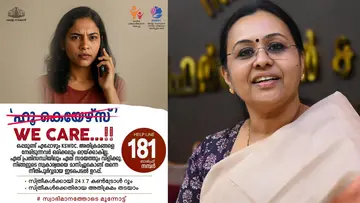
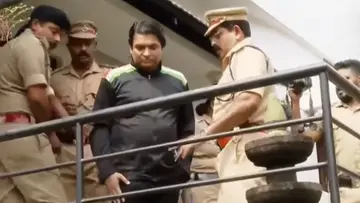
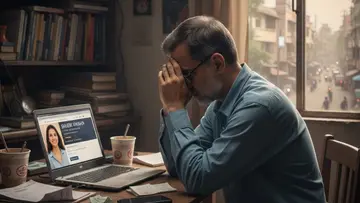
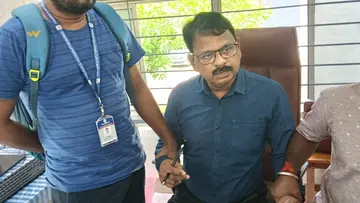
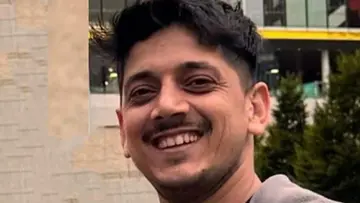
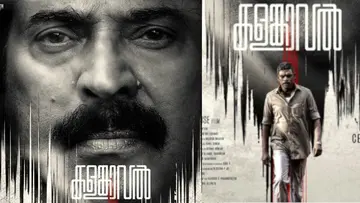

0 comments